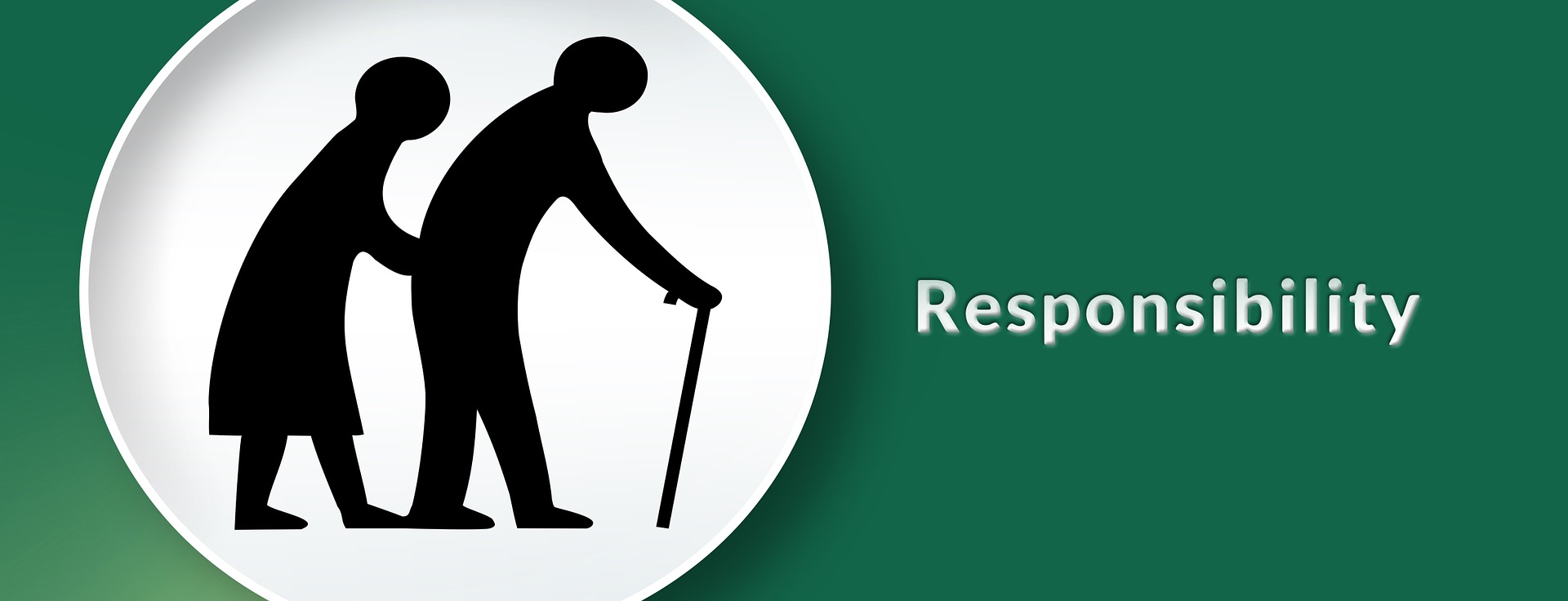Random Terms Re: Retirement Transitioning
 The “new” definition of retirement includes a unique collection of synonyms. Gone are the designations “seclusion,” “privacy,” “withdrawal,” “retreating” and “disappearing” based on archaic models of retiring when the average life expectancy at birth in the 1800s was 38 and in the 1900s was 47. (Merriam-Webster and others still show these words on their online dictionaries!) Now, some of the more creative descriptors for retirement are “renewment,” “rewirement,” “rest-of-life,” “second beginnings,” and “reinvention.” (Also see http://www.cbsnews.com/news/how-do-you-define-retirement/.)
The “new” definition of retirement includes a unique collection of synonyms. Gone are the designations “seclusion,” “privacy,” “withdrawal,” “retreating” and “disappearing” based on archaic models of retiring when the average life expectancy at birth in the 1800s was 38 and in the 1900s was 47. (Merriam-Webster and others still show these words on their online dictionaries!) Now, some of the more creative descriptors for retirement are “renewment,” “rewirement,” “rest-of-life,” “second beginnings,” and “reinvention.” (Also see http://www.cbsnews.com/news/how-do-you-define-retirement/.)
In addition to these, there are a few nontraditional terms that may come up during the passage from full-time employment to “living the dream” (hopefully) in retirement. These will not show up in a typical book for retirees… but, understanding them can “make a difference” through this roller-coaster ride of coping with life-style changes/altered expectations, and finding creative new ways to self-reinvent and thrive.

Marginality and Mattering
Do you feel “needed” and “making a difference” to others? The definition of “mattering” is “the belief that we matter to someone else.” This is an essential part of what author Ernie Zelinski of the best-seller Retire Happy, Wild, and Free emphasizes the importance of “finding purpose, structure, and community in retirement.”
“It has been suggested that one problem of retirement is that one no longer matters; others no longer depend on us… The reward of retirement, involving a surcease from labor, can be the punishment of not mattering. Existence loses its point and savor when one no longer makes a difference.” – Rosenberg and McCullough Quoted in Revitalizing Retirement: Reshaping Your Identity, Relationships, and Purpose by Nancy Schlossberg (APA, 2017)
According to counseling psychologist Nancy Schlossberg, Rosenberg’s concept of “mattering” is “a universal, lifelong issue that connects us all.” Her four dimensions of mattering are:
- Attention – the feeling that a person has the interest of another;
- Importance – the feeling that others care about what you want, think, and do;
- Ego-Extension – the feeling that others will be proud of your successes and/or saddened by your failures;
- Dependence – the feeling that a person can depend on someone else.
Although initially attributed to collegiate retention, persistence and “getting students connected” (https://sites.google.com/site/uscedco030/Home/theorist-pages/marginality-mattering-and-validation-theory-nancy-schlossberg-laura-rendon/schlossberg), Schlossberg defines “maginality” as “a sense of not fitting in” and which “can lead to self consciousness, irritability and depression. For some, these feelings can be permanent conditions.” Furthermore, “feelings of marginality often occur when individuals take on new roles, especially when they are uncertain about what a new role entails.”
Just like the sometimes tumultuous passage to and emotional ups-and-downs during your “life after the work?”

PTSD
What does “post-traumatic stress disorder” have to do with leaving your job? Hopefully it does not apply to you, but…
If are among the surprisingly large number of music teachers who lost their job “involuntarily,” you may be undergoing the same “stages of grief and loss” often shared during the breakup of a marriage or the dealth of a loved one:
- Denial (disbelief, numbness, shock)
- Bargaining (preoccupation with “what could have been,” guilt, remorse)
- Depression (sadness, loneliness, emptiness, isolation, self-pity)
- Anger (feelings of helplessness, abandonment)
- Acceptance (emotional resolution, healing)
 Feeling you were “kicked to the curb,” “downsized,” “minimized,” or somehow “forced” to resign or retire comes from many scenarios:
Feeling you were “kicked to the curb,” “downsized,” “minimized,” or somehow “forced” to resign or retire comes from many scenarios:
- Music or staff are eliminated from the curriculum or building in which you teach.
- You feel you must retire early before the end of the contract to avoid losing existing medical or other contractual benefits.
- While voluntarily retiring from the full-time “day” job, you hope to continue serving in the capacity as assistant director (marching band, musical, etc.), but are not re-assigned or asked to return.
- The new head coach of the sport in which you have assisted for many years fires you to bring in his “cronies.”
- The perception that the program to which you have devoted your whole career is being dissembled or de-emphasized for the next “flavor-of-the-year.”
Most mental health experts agree, you cannot self-diagnose PTSD. However, the “warning signs” are probably evident. If you are having trouble sleeping, difficulty with relationships, or find yourself feeling significantly depressed or lethargic, visit your health care professional.

Losing old habits…
“Surrendering your urge to be an agent of change!”
The next retiree concept is more of a habit or tendency, something that those of us who retired from education may find it a little hard to stop doing at first. Among the core values of “moral professionalism,” we consistently seek ways to reform “the system,” much like efficiency experts. In other words, “break it if it needs fixed,” or seek new practices or approaches to solve problems. This means we seldom accept the status quo or “that’s the way it’s always have been done.”
I found that in my volunteer work, when I come up to a challenge like a policy that isn’t working, I look for better ways of doing it. Teachers always self-assess and seek changes for “the good of the order,” but these “systems” are not our classrooms. Educators were expected to “monitor and adjust,” modify our lesson targets, rip down old bulletin boards and put up new with more exciting media, re-write curriculum, etc. – always with the mission to “build a better mouse trap” for more efficient delivery of instruction to all.
 In retirement, this can be frustrating. You can’t tell somebody else how to run their operation. Some people do not want to hear criticism, nor do they care what your opinion is, nor do they want to change their traditions or fine-tuned (?) step-by-step procedures. You on the other hand want things to improve, e.g. better training, more consistent application of the rules, etc., and therefore you feel “unrequited stress.”
In retirement, this can be frustrating. You can’t tell somebody else how to run their operation. Some people do not want to hear criticism, nor do they care what your opinion is, nor do they want to change their traditions or fine-tuned (?) step-by-step procedures. You on the other hand want things to improve, e.g. better training, more consistent application of the rules, etc., and therefore you feel “unrequited stress.”
Throughout my whole “professional life,” I never looked the other way. I try to fix things. But that’s not everybody’s inclination, and the world is not going to come to end if someone doesn’t take your advice. As retirees, remove the unnecessary hassle. You have two choices. Resign from the activity, or step back from being its self-appointed critic, accept the situation, and let everyone go back to playing their own way in their “sandbox.”

Caregivers anchor
Many retirees choose to be part- or full-time caregivers, perhaps babysitting or serving as the custodian of a senior family member.
If you are fortunate enough to have grandchildren (your own or adopted ones), enjoy them! Your generous super-competent daycare services may provide ever-so-essential attention to your loved-ones. “Playing with the kids” is wonderful for your own mood, perspective, and mental health. And, how many times have I heard the sage advice to “immerse yourself around young people and you will stay forever young!”
 However, invest your time wisely. Retirees deserve a life of their own and opportunities for unstructured “time-off.” Don’t forget the other items on your “bucket lists” (like travel, “encore career,” and volunteering). Serving as your family’s childcare “safety net” is nice, but don’t let this schedule dominate everything you do in your retirement… trading one job for another… with no financial compensation (but a whole lot of fun, I know).
However, invest your time wisely. Retirees deserve a life of their own and opportunities for unstructured “time-off.” Don’t forget the other items on your “bucket lists” (like travel, “encore career,” and volunteering). Serving as your family’s childcare “safety net” is nice, but don’t let this schedule dominate everything you do in your retirement… trading one job for another… with no financial compensation (but a whole lot of fun, I know).
Sometimes the responsibility of taking care of an elderly family member comes to you unexpectedly (like an ill parent or grandparent). When this “all-encompassing” duty is thrust upon you, it may consume every free moment in your schedule.
This excellent advice is from the blog-site “A Place for Mom.”
Many of us do end up deciding to become family caregivers, a demanding role that often includes advocating for your loved one, coordinating providers, and performing home medical care tasks.
In fact, over 65.7 million Americans currently provide care for a family member or loved one, according to the National Alliance for Caregiving, and 36% of those are caring for an elderly parent.
Being prepared for the role of caregiver means taking a lot of different factors into consideration. You will need to ask yourself hard questions about how your own availability and care-giving capabilities will affect your ability to provide effective care — for your loved one and yourself.
– https://www.aplaceformom.com/blog/2-24-14-caregiver-questions-to-as/
Several of the “big questions” from their site:
- Am I financially prepared for the extra costs of care-giving?
- Am I really capable of taking care of Dad or Mom all by myself?
- Do I have the social support and resources I’m going to need?
- How will care-giving affect my physical and mental health?
- Will I be able to make time for myself and my family?
 Again, that focus on “first things first” (remember the book of the same name by Stephen Covey?) and “take care of yourself, too!”
Again, that focus on “first things first” (remember the book of the same name by Stephen Covey?) and “take care of yourself, too!”
In her book In A Different Voice (Harvard University Press), author Carol Gilligan describes the philosophy of moral development based on “evolving steps of caring.”
- Decisions based solely on care for their needs. (GOOD)
- Decisions based on care for the needs of others. (BETTER)
- Decisions based on care for themselves and others. (THE BEST)
As mentioned in a previous blog, we could all hope to prescribe to Kathy Merlino’s “independent-living manifesto” ― being actively involved in her children’s lives, but NOT leaving them the ultimate chore of “taking care of mom!”

“Stressed over the season”
Finally, while we are on the subject of care-giving, here are a few links to alleviating stress, especially around the coming winter holidays:
Also, although I wrote my own blogs about “the happiest time of the year,” (see https://paulkfoxusc.wordpress.com/2015/11/29/tips-for-retirees-on-managing-stress-during-the-coming-winter-celebrations/ and https://paulkfoxusc.wordpress.com/2015/12/22/random-acts-and-other-resolutions/, I found more wisdom re: “stress for seniors.”
Best wishes for you and yours to enjoy the festive season and a Happy New Year!
PKF
© 2017 Paul K. Fox

Photo credits from Pixabay.com: “person” by RitaE, “dictionary” by stevepb, “volunteer” by maialisa, “stress” by thedigitalartist, “checkmate” by stevepb, “head” by johnhain, “comic-characters” by OpenClipart-Vectors, “grandfather” by kko699, “grandparents” by sylviebliss, “seniors” by geralt, “shopping-mall” by stocksnap, and “senior” by RitaE




 The “new” definition of retirement includes a unique collection of synonyms. Gone are the designations “seclusion,” “privacy,” “withdrawal,” “retreating” and “disappearing” based on archaic models of retiring when the average life expectancy at birth in the 1800s was 38 and in the 1900s was 47. (Merriam-Webster and others still show these words on their online dictionaries!) Now, some of the more creative descriptors for retirement are “renewment,” “rewirement,” “rest-of-life,” “second beginnings,” and “reinvention.”
The “new” definition of retirement includes a unique collection of synonyms. Gone are the designations “seclusion,” “privacy,” “withdrawal,” “retreating” and “disappearing” based on archaic models of retiring when the average life expectancy at birth in the 1800s was 38 and in the 1900s was 47. (Merriam-Webster and others still show these words on their online dictionaries!) Now, some of the more creative descriptors for retirement are “renewment,” “rewirement,” “rest-of-life,” “second beginnings,” and “reinvention.” 

 Feeling you were “kicked to the curb,” “downsized,” “minimized,” or somehow “forced” to resign or retire comes from many scenarios:
Feeling you were “kicked to the curb,” “downsized,” “minimized,” or somehow “forced” to resign or retire comes from many scenarios:
 In retirement, this can be frustrating. You can’t tell somebody else how to run their operation. Some people do not want to hear criticism, nor do they care what your opinion is, nor do they want to change their traditions or fine-tuned (?) step-by-step procedures. You on the other hand want things to improve, e.g. better training, more consistent application of the rules, etc., and therefore you feel “unrequited stress.”
In retirement, this can be frustrating. You can’t tell somebody else how to run their operation. Some people do not want to hear criticism, nor do they care what your opinion is, nor do they want to change their traditions or fine-tuned (?) step-by-step procedures. You on the other hand want things to improve, e.g. better training, more consistent application of the rules, etc., and therefore you feel “unrequited stress.”
 However, invest your time wisely. Retirees deserve a life of their own and opportunities for unstructured “time-off.” Don’t forget the other items on your “bucket lists” (like travel, “encore career,” and volunteering). Serving as your family’s childcare “safety net” is nice, but don’t let this schedule dominate everything you do in your retirement… trading one job for another… with no financial compensation (but a whole lot of fun, I know).
However, invest your time wisely. Retirees deserve a life of their own and opportunities for unstructured “time-off.” Don’t forget the other items on your “bucket lists” (like travel, “encore career,” and volunteering). Serving as your family’s childcare “safety net” is nice, but don’t let this schedule dominate everything you do in your retirement… trading one job for another… with no financial compensation (but a whole lot of fun, I know). Again, that focus on “first things first” (remember the book of the same name by Stephen Covey?) and “take care of yourself, too!”
Again, that focus on “first things first” (remember the book of the same name by Stephen Covey?) and “take care of yourself, too!”







 PSERS (PA pension fund) Planning: 12 months or more away from your projected retirement date, attend a “Foundations for Your Future” program (even attend it more than once), and request a retirement estimate (form PSRS-151), after which you will need to schedule the all-important “Exit Counseling Session.”
PSERS (PA pension fund) Planning: 12 months or more away from your projected retirement date, attend a “Foundations for Your Future” program (even attend it more than once), and request a retirement estimate (form PSRS-151), after which you will need to schedule the all-important “Exit Counseling Session.”


 Take a deep breath, find an easy chair, ignore your cell phone’s texts/calls, and plunge into her full website:
Take a deep breath, find an easy chair, ignore your cell phone’s texts/calls, and plunge into her full website:  As a music educator, this last title peaked my interest. We urge every retiree to revisit their creativity roots and seek renewed opportunities to enjoy music as a lifelong pursuit. (We have already posted reprints of several of my articles on this subject from PMEA News, the state journal of the Pennsylvania Music Educators Association, including
As a music educator, this last title peaked my interest. We urge every retiree to revisit their creativity roots and seek renewed opportunities to enjoy music as a lifelong pursuit. (We have already posted reprints of several of my articles on this subject from PMEA News, the state journal of the Pennsylvania Music Educators Association, including  Generally, I am not much in favor of perusing commercial websites on planning for retirement, especially those by investment counselors, but Ernie Zelinski (author of bestsellers like How to Retire Happy, Wild, and Free) sent me this link:
Generally, I am not much in favor of perusing commercial websites on planning for retirement, especially those by investment counselors, but Ernie Zelinski (author of bestsellers like How to Retire Happy, Wild, and Free) sent me this link:  The final entry at goldretiree.com, AARP is worth mentioning here
The final entry at goldretiree.com, AARP is worth mentioning here  p Guides,”
p Guides,”

 Updates to my presentation “Surviving and Reveling in Retirement” for the PMEA Summer 2016 Conference are posted on the PMEA retired members website:
Updates to my presentation “Surviving and Reveling in Retirement” for the PMEA Summer 2016 Conference are posted on the PMEA retired members website: 